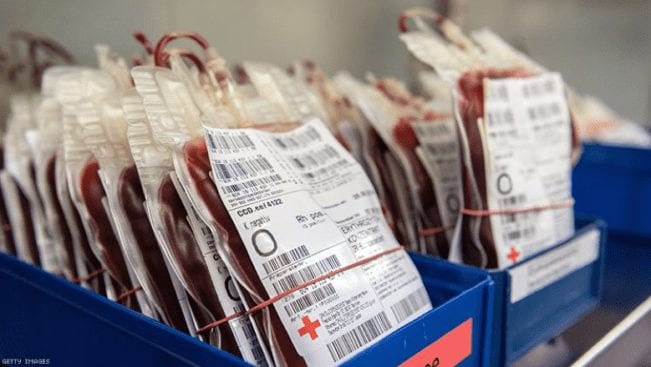
Photo courtesy of the Out Magazine
The French government recently lifted its blood donation ban on men who have sex with men (MSM). Currently, gay and bisexual men must abstain from having sex with men for 12 months in order to donate blood. As of February 1, 2020, the deferral period will be 4 months instead of 12. Ultimately, the French government aims to do away with the deferral period completely by 2022. As we embrace the change of the outdated policy that stigmatizes gay and bisexual men, a more tailored measure than general MSM deferral would be a better solution.
Many countries in the world have deferral periods, if not life-time bans, on MSM who wish to donate blood and save lives. In U.S., it started out as a life-time ban in 1983, the peak of the highly infectious HIV epidemic, to safeguard national blood supply from contamination of lethal diseases, targeting MSM in response to statistics showing high prevalence of MSM in new HIV infections.
The ban came with collateral damages of further stigmatization and marginalization of the gay community. It was justifiable at that time given the highly infectious and deadly nature of HIV epidemic. However, with the advances of HIV prevention and detection, it became questionable whether a life-time blood donation ban on MSM is constitutional. In. 2015, FDA conceded to advocates and critics, replacing the life-time ban with a 12-month deferral period. While some thought the policy is a huge step towards ending discriminatory policy against the gay community, some thought the 12-month period is far from aligned with modern HIV screening technology and perpetuates stigmas that all gay and bisexual men are inherently high in risks of HIV infection.
Acknowledging that a deferral period is still necessary given the windows of HIV detection, it’s argued that the deferral period should be based on individual’s behaviors instead of gender and sexual orientation for the following reasons:
First, the general deferral on MSM is discriminating. Not all MSM are at higher risks of HIV infection. The main risk factors for MSM are unprotected anal sex and syringe sharing, which not all MSM engage in. In addition, these activities may be seen in heterosexual men and women as well. The policy dangerously endorses stigmas against gay and bisexual men, turning a blind eye on the potential risks posed by heterosexual men and women.
Second, the 12-month deferral period is scientifically outdated. HIV prevention methods and screening tests have taken great leaps over the years. With PrEP and PEP, the risk of HIV transmission through sexual intercourse is significantly reduced. Studies have shown that PrEP effectively reduces the risk of getting HIV from sex by 99% approximately when taken consistently. In addition, all donated blood will be sent to laboratory for screening of infectious diseases, including HIV. If any diseases are detected, the donated blood will be discarded. The current method used for HIV screening is Nucleic Acid Test (NAT), which significantly closes the widow between infection and detection to 7-10 days, making the 12-month deferral unnecessarily long.
Lastly, the general deferral on MSM aggravates the shortage of national blood supply. According to the American Red Cross, which provides approximately 40% of the nation’s blood supply, only about 3% of age-eligible people donate blood yearly. A study in 2010 estimates that an additional 130,150 men would be eligible to donate blood, increasing the total annual US blood supply by 0.6% to 1.4%. While it is still questionable whether the 12-month deferral period enhances the safety of the national blood pool, it sure doesn’t help secure adequate blood supply.
The current 12-month deferral in the United States is needlessly over-inclusive in terms of actual risks and HIV testing technology. Moreover, it operates at the expense of gay and bisexual men, and national blood supply. Therefore, a call for a more tailored measure for pre-donation screening on the basis of individuals’ behaviors instead of the general MSM deferral.



